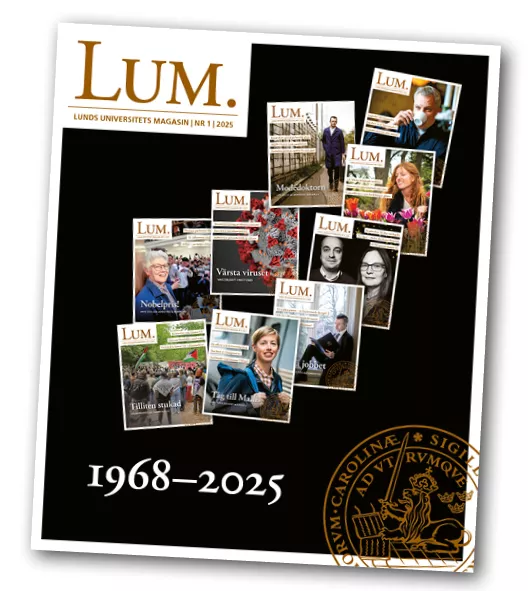Ultrasound diagnosis, the first respirator, oat milk, Bluetooth and gene therapy in cancer treatment. These are just some of the inventions that are usually mentioned when talking about groundbreaking innovations that have sprung from research at Lund University over the years.
And for those researchers who are curious about how their research might come to benefit society, there is help available from LU Innovation, a unit within the Research, Collaboration and Innovation Division.
”We usually talk about moving from insight to impact and we help staff, students and researchers to do just that”, says Head of Office Niclas Nilsson.
Different services
Examples of services offered by LU innovation are idea and innovation development, financial support and expert legal knowledge about how to write contracts and apply for patents. They can also help with marketing, appointing a board or finding an appropriate CEO. The focus is primarily on helping researchers and students to start companies with the potential for growth, but LU Innovation also helps to develop non-commercial innovations of benefit to society without corporatisation.
“We want to help to make the world better through companies that can be scaled up and bring about a substantial change. That might pertain to technology, climate, health and social care, but commercialisation is not an end in itself.”
The unique ”teacher's exemption”
The clause known as the “teacher’s exemption” means that a researcher who comes up with an idea or invention owns the rights to it themselves. This makes Sweden unique, globally – in almost all other countries, it is the universities who own the rights. The “teacher’s exemption” means great freedom, but also responsibility, for the individual researcher. Niclas Nilsson wishes that more people within Lund University understood the potential that commercialising their research has.
“We shouldn’t just stop at understanding and explaining, we have to improve things too. Some researchers believe that if they publish the results of their research, that knowledge will find its way into industry. But unfortunately that is not how it works, we have to work actively.”
Aimed at all faculties
He argues that traditionally, there is an attitude in the higher education sector towards commercialisation as something that academics ought not to be involved with. That is something he feels is a shame.
“We want to see a change of culture in this area, and for the past year we have marketed ourselves more towards researchers. We want to make them aware that free help is available and that there is no risk or obligation associated with contacting us.”
LU Innovation is aimed at students and staff at all faculties. An important change is that VentureLab, an incubator that previously focused primarily on students, is now extending its support to also include researchers.







